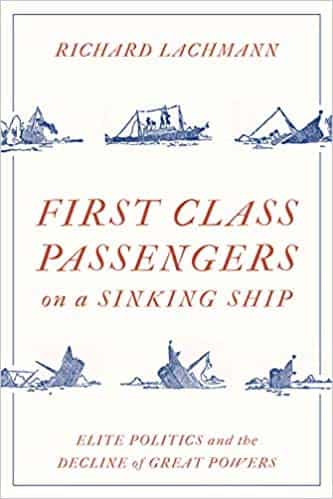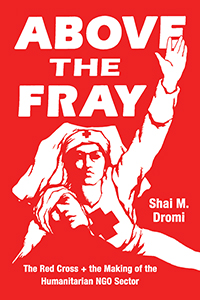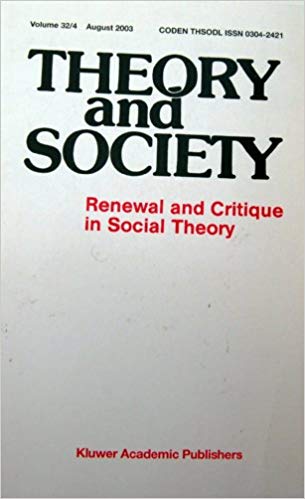(Photo: Lucas Jackson / Reuters)
The two candidates take opposing positions in a debate as old as the New Deal.
Josh Pacewicz
In this election cycle, left-of-center Democrats are faced with an unprecedented embarrassment of riches: two front-running candidates who promise big structural reforms. But, beyond this or that policy position, what is the difference between Elizabeth Warren and Bernie Sanders?
Media observers sometimes frame the difference as one of style or degree, with Warren cast as a moderate, ecumenical, or wonky version of Sanders. This framing may be consistent with each candidate’s messaging, but it squares poorly with the facts so far. Consider that this season’s more radical regulatory and fiscal proposals have come first from Warren, supposedly the more moderate of the two.
My argument in this essay is that media narratives that present Warren as a warmed over version of Sanders (or vice versa) misread the situation and produce false expectations about both candidates. Warren and Sanders differ in many ways, including in their policy priorities. And the best way to make sense of their policy differences is to view them in historical perspective—in particular, by revisiting disagreements among New Deal-era reformers.
Today’s left-of-center Democrats largely divide along the same lines as reformers did then. Warren and Sanders embody competing visions of American political economy. And their visions imply different end goals—for Sanders, a European-style welfare state, and for Warren, a regulatory state that supports people’s capacity to build wealth.
Before proceeding, two quick caveats.
First, my interest in this essay is in the policy priorities of Warren and Sanders, which requires some degree of guess-work about what each cares about most. I infer priorities from policy platforms, but also from which policies the two showcase and how they talk about them. If elected president, any Democrat would be lucky to get much big legislation through Congress.
What follows is my best guess about what each candidate would prioritize and fight for.
Second, this essay provides no definitive rationale for supporting one candidate over the other. Differences between Warren and Sanders are slight relative to their differences with other Democratic candidates (and certainly vis-à-vis the GOP). And there are many reasons to like a candidate besides policy priorities. For example, some people look for a candidate whose style or campaign strategy can mobilize previously disengaged voters (see here and here). But an understanding of each candidate’s policy priorities is surely important for making an informed choice. And a revisit of the New Deal helps us to identify the key differences.
The New Deal: European welfare state or wealth-building through regulation and taxation?
Warren and Sanders are, in many respects, children of the New Deal. Both regularly invoke Franklin Delano Roosevelt and champion proposals inspired by New Deal policies. But the New Deal was motivated not by a coherent ideology so much as by fierce debates about how to deal with unprecedented crises—the mad mashing of buttons by reformers who offered different solutions to the problems of the day. Then, as now, there were two competing impulses.
Some reformers looked with envy on the cradle-to-grave social programs that existed or were being created in Europe. This was ultimately a road not taken by the United States, where social programs remained underdeveloped vis-à-vis Europe. But many recent works of social science suggest that the New Deal state was not comparatively weak or inactive. Rather, New Dealers focused on fiscal and regulatory reforms designed to redistribute wealth.
Monica Prasad argues that this divergence between Europe and the United States occurred due to the different position of each within the global economy. By the early-20th Century, the United States was, to take the title of Prasad’s book, “The Land of Too Much.” Agricultural and manufacturing productivity far outpaced that of Europe, and consumer demand could not keep up, leading to falling prices. The government tried in vain to stabilize prices by dumping excess milk in rivers, setting bales of cotton ablaze, and destroying manufactured goods.
Europe faced scarcity. Productivity lagged, particularly after the Second World War, which devastated European nations. Policy-makers hoped to limit domestic consumption and invest everything in national industries capable of competing globally with American firms.
For both European and American policy-makers, welfare policies were a social contract with citizens—one that offered benefits in exchange for the sacrifices necessary to maintain or enhance economic competitiveness within the global economy.
In Europe, the bargain was public programs in exchange for lower income and personal consumption. European governments convened sector-wide national labor-management councils and convinced organized labor to accept lower wages in exchange for expansion of cradle-to-grave government programs. They pursued industrial policies that encouraged, rather than broke up, monopolies. And they developed systems of taxation that relied on consumption taxes rather than corporate or progressive income taxes.
Americans are always surprised to hear that even in social democratic countries, some taxes are notably more regressive than in the United States—like in Sweden, where citizens pay a 25 percent value-added tax when purchasing most goods and services. This, in conjunction with lower wages, limited consumption in Europe: fewer cars, smaller homes and apartments, less luxury.
In the United States, the New Deal bargain was to allow for more consumption in exchange for a weaker safety net. Policy-makers saw under-consumption as the problem, which they blamed on the same culprit as do many progressives today: inequality. They lived in a “land of plenty,” but the dollars were in the wrong pockets.
The solution was redistribution. In the words of Huey Long, a left-wing populist whose program FDR coopted, New Dealers hoped to make “Every man a king,” as Prasad recounts.
The New Deal’s big innovations were fiscal and regulatory. New Dealers passed some sweeping work programs early on and, most significantly, established the Social Security Administration. But American social programs remained limited in scope—mostly means tested, or reserved for the most vulnerable and worst off. For example, the United States remains virtually unique in its absence of some universal program of health care insurance.
But relative to Europe, the American taxation and regulatory system was a beast. Personal and corporate taxation was by far the most progressive in the world, with top marginal tax rates that peaked at 90 percent. The United States was also virtually unique in its absence of a national sales or value-added tax, and remains so.
Citizens’ consumption was also fueled by regulations that promoted plentiful, cheap, and secure credit. Regulators subdivided the financial sector and eliminated serious financial crises for a generation. A federally-backed mortgage market standardized the 30-year mortgage and turned the United States into a nation of homeowners (though nonwhite Americans were excluded—more on this below). Consumers were additionally protected by a web of regulatory agencies that pioneered everything from seat belts, to the world’s most lax personal bankruptcy laws, to modern food labeling requirements.
Like Elizabeth Warren today, the New Dealers who championed regulatory and fiscal policies proudly declared themselves pro-capitalism, for that was the point: not to create a safety net to shelter Americans from the market, but to eliminate the need for one by redistributing wealth.
Warren and Sanders in historical perspective
The breakdown of the New Deal system fueled the rising inequality of recent decades. The nation’s tax laws have become less progressive. And given Americans’ historical reliance on credit, deregulation of the financial system wreaked havoc on people’s pocketbooks—and additionally encouraged corporate mergers and investment strategies that move wealth from workers to managers and from rural areas to financial centers in a few large cities.
The divergence between Warren’s and Sanders’s respective priorities largely boils down to disagreement about what to do now—rebuild the New Deal fiscal and regulatory system or try for something social democratic? Warren and Sanders often adopt one another’s planks, making some of the differences between their platforms ones of degree. But the priorities of the two candidates are evident when one considers the principles behind each conversation: taxation and regulation versus social programs.
The most radical regulatory and fiscal proposals have come from Warren, while Sanders has put universal, European-style social programs on the agenda.
The New Deal era’s regulatory elan is at the center of Warren’s candidacy, unsurprising given her history as a consumer advocate. Though many Americans today see regulation as wonky and therefore moderate, Warren’s proposals embody the New Dealers’ penchant for regulatory populism. The call to break up big tech companies, for example, came from Warren’s campaign. And Warren, more than Sanders, has built her candidacy around Huey Long-type calls for soak-the-rich taxation.
Of course, they converge on some things. Both candidates call for higher taxes on the rich and neither has proposed a European-style value-added tax—of the Democratic candidates, only outlier Andrew Yang has done so.
But it was Warren who first called for a wealth tax, a policy consistent with but beyond the accomplishments of the triumphant New Dealers. And it is Sanders who says paying for Medicare for All with taxes on middle-income Americans is a matter of course while Warren floundered, refusing to consider this.
Sanders embodies American progressives’ historical fascination with European welfare states. It is true that both candidates support Medicare for All. But the idea came from Sanders and is central to his campaign, whereas Warren is more tepid and signals a willingness to deprioritize the policy. And Sanders’ programmatic proposals tend to be universal, whereas Warren’s often include means tests. Sanders proposes eliminating all college debt. Warren proposes doing so only for lower income Americans.
At issue in universal versus means-tested programs is a disagreement about the goals of social policy. Many Americans may see Warren’s inclination towards means testing as a symptom of pragmatic wonkery—a targeting of public benefits to those who truly need them. But means tests also imply that the goal of social programs is to protect the vulnerable and worst off, a rather American take on the welfare state.
By contrast, many European reformers see the goal as creating a lived experience that is the same for all citizens, regardless of income. In many social democracies, the rich and poor send their children to the same public daycares. Rich and poor college students live in the same subsidized apartments and eat at the same subsidized dining halls. Drivers pay traffic fines that are calibrated on a progressive income scale to be equally onerous to rich and poor alike.
Sanders has put many such universal programs on the American public agenda. This includes better known programs like Medicare for All and Free College for All, but also many lesser-known policies—from universal internet access to a housing policy built around mixed-income housing that integrates market rate and publicly subsidized units.
Whether Warren or Sanders offer workable solutions for today’s pressing problems is an open question.
One may wonder whether either reformist tendency would reduce glaring inequities between white and nonwhite Americans. My suspicion is that the devil is in the details; neither approach guarantees a path to racial inclusion nor is immune to racial bias. Historically, the obverse was certainly true. African Americans and Hispanic Americans were definitely barred from federal mortgage and other wealth-building initiatives, but most were also excluded from more-universal programs like Social Security. And today, Scandinavian social democracies are rife with racial and ethnic discrimination, as evidenced by rates of residential segregation of non-European immigrants comparable to those of African Americans in the U.S.
Likewise, one may wonder if a consumption-oriented approach to political economy can be reconciled with a climate policy that reduces carbon emissions—this is one big reason why the policies that worked in the 1930s may not be appropriate today. Here again, I think it depends. Historically, Americans have certainly associated material wellbeing with fossil-fuel driven consumption. But there’s no reason why such impulses could not be turned towards greener ends—reformers could champion consumption of electric cars over pickup trucks, energy efficient condos over McMansions, locally grown food and services over plastic tchotchkes.
In sum, the choice between Warren and Sanders involves considerable value judgement, but we should start by recognizing that their differences run deeper than personal style and are not ones of degree. Both candidates want to take the country in a new direction, but they disagree about the destination. In that respect, Warren and Sanders take opposing sides in a debate that has divided American reformers since the New Deal.
Josh Pacewicz is an Associate Professor of Sociology at Brown University. His research focuses on American urban governance, federalism, party politics, and the welfare state.



